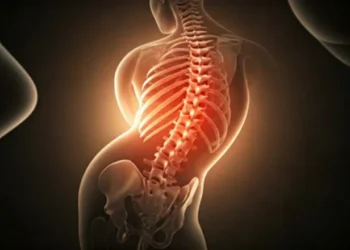The postpartum period is a critical phase in a new mother’s life. It’s a time of significant physical and emotional adjustments that require special care and attention. Proper postpartum care is essential for a mother’s well-being and her ability to care for her newborn. While it may seem selfish to take time for yourself, you and the baby will benefit from it. Here are seven in-depth tips to help new moms navigate this challenging yet beautiful phase.
Table of Contents
Rest and Sleep
The sleep patterns of newborns can undoubtedly disrupt a new mother’s sleep routine since the baby must feed regularly and have irregular sleep patterns, making getting a whole night’s sleep a rare luxury. Yet new mothers need to prioritize rest whenever possible. One practical strategy to achieve this is to enlist the support of family and friends. By sharing baby-watching duties with your loved ones, you can steal precious moments of rest during the day. Short power naps can significantly affect your energy levels and overall well-being. Lack of sleep can lead to postpartum fatigue, which can, in turn, hinder the healing process physically and emotionally. Ensure that your bedroom is dark, quiet, and comfortable. Investing in blackout curtains, white noise machines, and a comfortable mattress can significantly improve the quality of your sleep.
Capture the Memories
In the whirlwind journey of new motherhood, every moment feels fleeting and precious. As days blend into nights and weeks roll on, find unique ways to hold onto these invaluable memories. Many new moms turn to tangible keepsakes to forever capture the bond formed during this time. One particularly meaningful memento is a beautiful breast milk ring, a beautifully crafted piece of jewelry that symbolizes the nurturing essence of motherhood. Another option is preserving a lock of your baby’s hair in a locket. Just as photos capture faces and journals capture thoughts, items like these serve as a tangible reminder of the strength, love, and sacrifice that define the early days of motherhood.
Nutritious Diet
A well-balanced diet is crucial for postpartum recovery and maintaining energy levels. Focus on foods rich in essential nutrients, including fruits, vegetables, lean proteins, and whole grains. Adequate hydration is also crucial, especially if breastfeeding, as it can dehydrate you. Consider consulting a lactation specialist or nutritionist for personalized guidance on nutrition tailored to your needs. Eating small, frequent meals can help stabilize your energy levels throughout the day.
Pelvic Floor Exercises
Pelvic floor exercises play a vital role in postpartum recovery. These exercises focus on strengthening the muscles in the pelvic region, which can become weakened or stretched during pregnancy and childbirth. Strong pelvic floor muscles are essential for maintaining bladder control and promoting the healing of the pelvic area. Performing these exercises discreetly throughout the day is convenient and highly effective. Ensure you are doing these exercises correctly and effectively by consulting a physical therapist specializing in postpartum care. By following a tailored pelvic floor exercise regimen under the guidance of a postpartum care specialist, new mothers can help prevent issues like urinary incontinence and promote the healing of the pelvic area.
Emotional Well-being
Postpartum blues and depression are prevalent experiences among new mothers, impacting their emotional and mental well-being. While postpartum blues, typically involve mood swings, anxiety, and mild depressive symptoms, are common, postpartum depression can be more severe and persistent. New mothers should never hesitate to seek support. Open communication plays a vital role in coping with these emotional challenges. Talking to your partner, close friends or family about your feelings can provide much-needed emotional release and support. If postpartum feelings of sadness and depression become overwhelming or don’t subside over time, seeking professional help is imperative. Mental health professionals, such as therapists and counselors, who specialize in addressing postpartum mental health issues can provide tailored strategies for coping and recovery. The postpartum period is a significant life transition, and acknowledging your feelings and reaching out for support is a courageous step toward improved emotional well-being, ensuring you can fully enjoy your journey into motherhood.
Proper Wound Care
Proper wound care is essential if you had a cesarean section or experienced perineal tears during childbirth. Follow your healthcare provider’s instructions meticulously for cleaning and caring for the incision or stitches. This minimizes the risk of infection and promotes a smooth recovery. Look for signs of infection, such as redness, swelling, or discharge. If you notice them, contact your healthcare provider immediately. Quick action can ensure that minor problems do not become more significant issues.
Exercise Gradually
While it’s crucial to prioritize rest during the early postpartum period, incorporating light, low-impact exercises can aid in healing and improve your mood. Consult your healthcare provider before initiating any exercise routine. Gradually increase the intensity as your body allows. Gentle yoga and stretching exercises can help restore flexibility and relieve tension. Always prioritize listening to your body and not pushing yourself too hard.
Conclusion
The postpartum period is a unique and challenging time for new mothers. Prioritizing self-care, emotional well-being, and physical recovery is essential. Every mother’s experience is different, so it’s important to consult with healthcare professionals for personalized guidance and support. By following these comprehensive tips, new moms can confidently navigate the postpartum period, ensuring a healthy recovery for themselves. When moms care for themselves, their baby is usually happier and healthier.


 Home
Home









